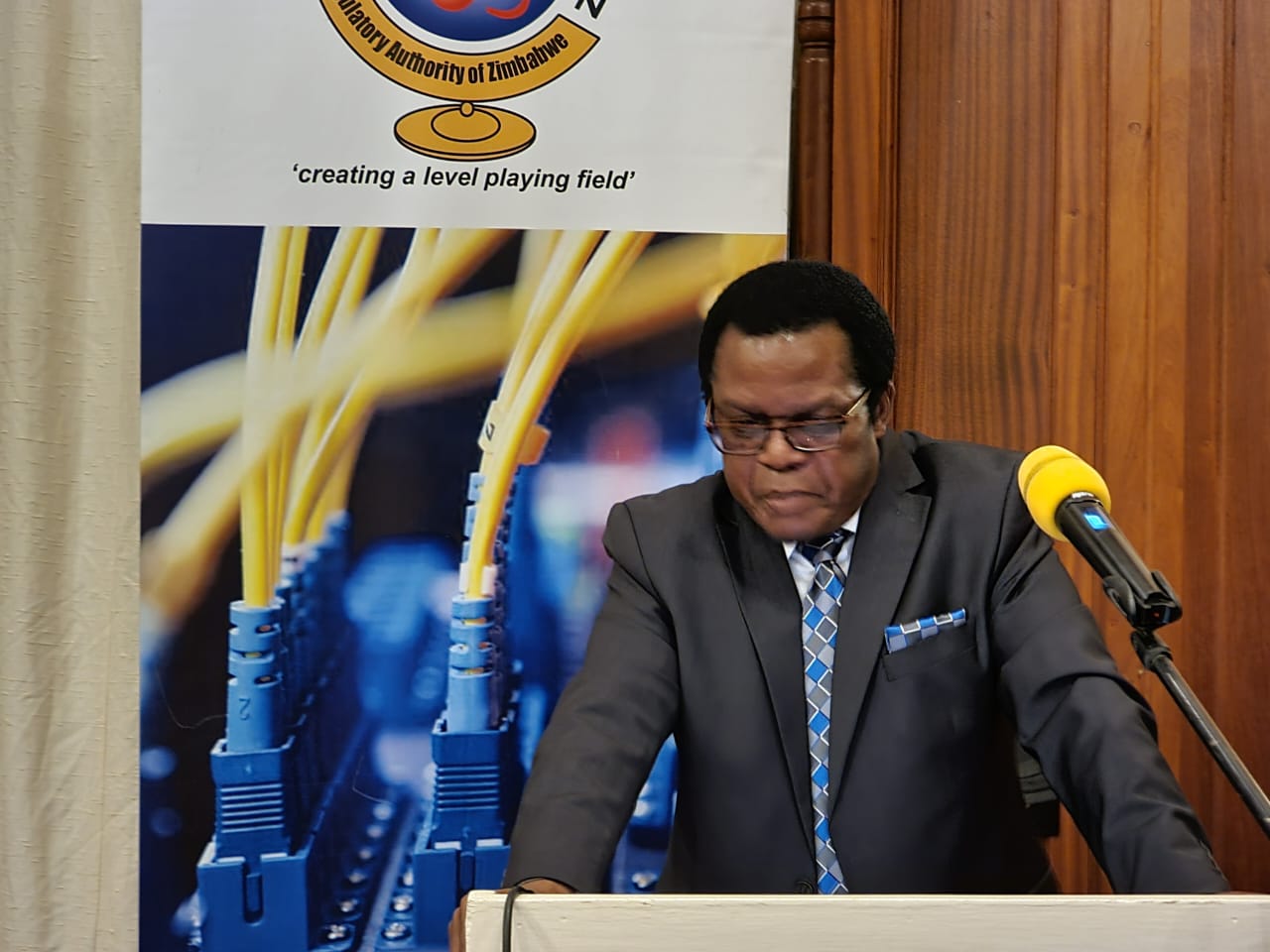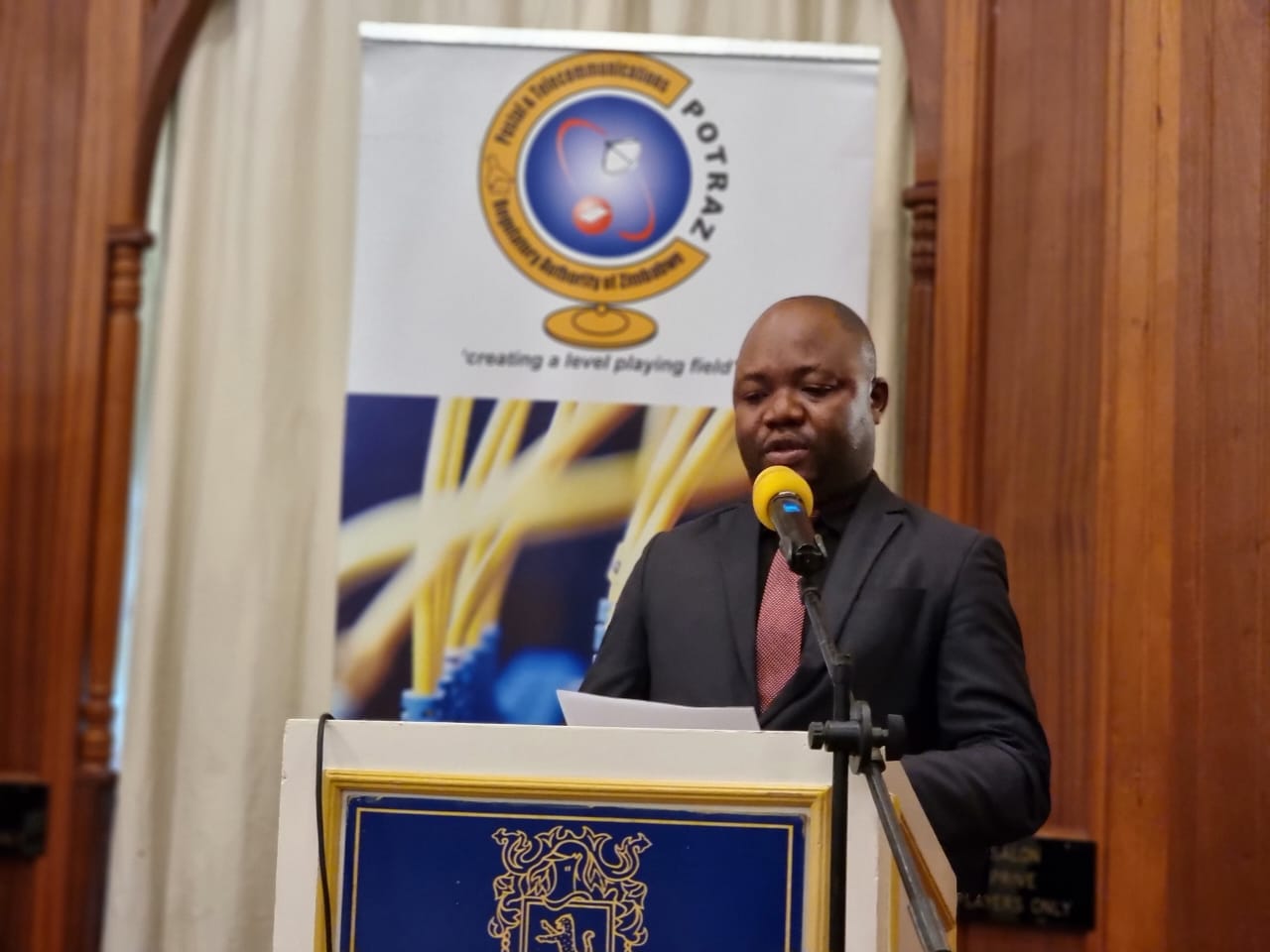|
Getting your Trinity Audio player ready...
|
Information Communication Technology (ICT) stakeholders are gathered in Vumba to discuss and digest matters impacting consumers and operators – the desire to balance service affordability while maintaining operator viability.
In his keynote address, read by his deputy Dr. Dingumuzi Phuti, the Minister of Information Communication and Technology (ICT), Postal and Courier Services said the deliberations are designed to provide the ICT stakeholders an in-depth understanding of the supply side, demand side, endogenous as well as exogenous factors that affect service affordability and operator viability.
“On our part as Parent Ministry for the ICT sector, we have come up with sector policies that are meant to spur service availability and affordability. The policies have seen the introduction of supply-side intervention measures meant to ensure service availability and affordability in underserved and remote areas.
“Notable policy programs have been the Community Information Centres (CICs) dotted around the country that ensures internet service access at no cost by the underserved communities. Through the Universal Service Fund, we are paying for bandwidth for 169 CICs for the provision of free Internet access to communities. In 2021, a total of ZWL86.7 million was disbursed towards payment for the bandwidth for CICs to facilitate free Internet access,” Minister Muswere said.
He said the programme is ongoing at a budgeted cost of ZWL115.7m for 2022. The computerisation of schools and construction of ICT labs do not only result in students accessing ICT services but doing so at affordable rates, thus bridging the digital divide.
The sector has managed to provide computers to various schools in marginalised areas and to date the USF has donated over 553 computers to 55 schools across the country. The fund is also being used to pay for bandwidth for 565 schools in the country since August 2021, a program that is ongoing in 2022 at a budget cost of ZWL770 million.
The Ministry has also overseen the operationalisation of Data centres meant to increase internet usage and well as deployment of a national fibre backbone. On the infrastructure provision side, the USF has been pivotal in the building of passive infrastructure in underserved areas meant to increase coverage and allow for 3G connections through mobile operators.
In 2022 there are plans to roll out four 3G new sites and relocate 19 other towers to new locations. Work is also undergoing towards the deployment of a high–capacity 120km fibre backbone link connecting Rutenga to Chikombedzi at a budgeted cost of ZWL504million. The backbone will allow Internet Service Providers (IAP) to offer better Internet speeds to the previously underserved area. Various institutions, including, schools along the route of the fibre backbone will benefit from this initiative. Intervention measures are also being extended to other sectors like health, where e-health programs are currently being implemented.
These projects and others have gone a long way in ensuring network provision at low costs by licensed operators. On the demand side, however, the minister said a lot needs to be done, as some of the requisite interventions are beyond the control of the ICT Ministry, sector regulator or operators.
Addressing the same gathering, Dr. Gift Machengete, the Director-General of the Postal and Telecommunication Regulatory Authority of Zimbabwe (POTRAZ) said the purpose of this engagement is for stakeholders to come together and collectively find solutions to the problems bedeviling the ICT sector.

“We believe teamwork and collaboration divide the task and multiply the success. In Shona, we say “Chara Chimwe hachitswanyi inda” surely with one finger you cannot crush lice. You need two. In the same vein, a famous Indian proverb goes like this “the razorblade is sharp but cannot cut a tree, the axe is strong but cannot cut hair if you want to cut a tree and if you want to cut hair then you need both”. This ladies and gentlemen is to say, we all have different backgrounds and different sets of skills and attributes, which should work together to complement each other if we are to achieve our objectives as a nation. Remember only we can build Zimbabwe and only together can we do such,” Dr. Machengete said.
He singled out partners that drive the ICT sector including the Reserve Bank of Zimbabwe (RBZ), the Zimbabwe Electricity Supply Authority (ZESA), the Zimbabwe Revenue Authority (ZIMRA), the media, Parliament, and the Consumer Protection Commission (CPC) as critical stakeholders.
ZESA’s work, particularly the rural electrification program compliments the ICT sector where it connects rural communities and institutions as part of ICT programs to bridge the digital divide. It is not possible to extend connectivity where there is no electricity hence the need to identify the gaps together and see how to complement each other going forward.
The telecommunications sector has been persistently knocking on ZIMRA’s doors for a review of the current tax regime for the sector hence discussion on finding a common place together.
Consumer Protection is key and central to POTRAZ as a regulator and operators alike need to keep their consumers happy as part of their broader marketing strategies. Thus the CPC is thus a key stakeholder whose attendance at the meeting is highly valued.
Another key stakeholder representing the media fraternity is the Media Institute of Southern Africa which has acted as a watchdog of the ICT sector and has brought about the much-needed check and balance mechanism.
On the other hand, the Portfolio Committee on ICT has kept the sector in check by always interrogating various processes such as the tariff formulation process and various activities and developments within the sector such as tariff movements and infrastructure deployment. The Committee has raised numerous other questions which are better answered by other stakeholders present at the meeting, hence the engagement created that platform for clarity.






